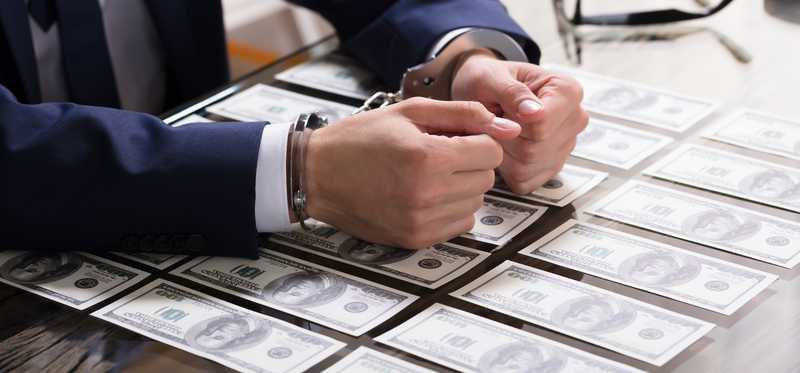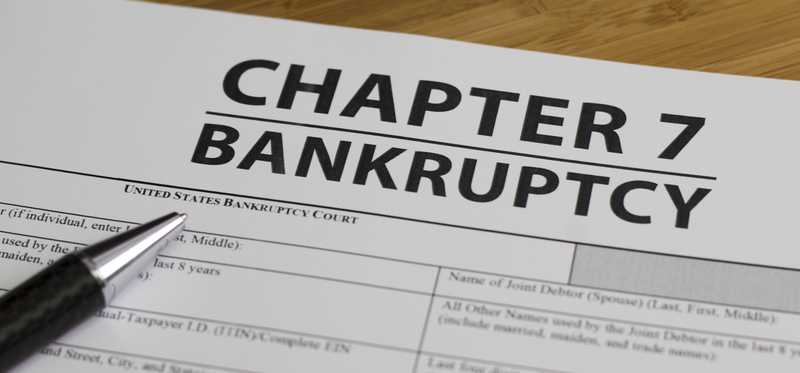The 5 Biggest Corporate Frauds in U.S. History

The 5 Biggest Corporate Frauds in U.S. History
Which companies couldn't handle the pressure?
Capitalism is brutally competitive. The ever-changing operating environment can make it hard for even the mightiest of companies to hit their numbers. At the same time, management teams are often under a huge amount of pressure to meet the expectations placed on them by investors. With millions (or billions!) of dollars on the line, this pressure-cooker environment gives managers an incentive to do anything that they can to win -- even if that means cheating.
In the last few decades, we’ve seen some of the largest corporate frauds in U.S. history. Here’s a review of five of the biggest of all time.
Previous
Next

1. Enron
Once upon a time, Enron was widely considered to be one of America’s most innovative companies. At its peak, the Houston-based energy and services conglomerate pulled in more than $100 billion in annual revenue.
Unfortunately, it was later revealed that the company was meeting its numbers by cooking its books. The company kept huge amounts of debt hidden from investors and falsified its financial statements. It was ultimately found guilty of a massive accounting fraud and was forced to declare bankruptcy.
Several of Enron’s key executives were found guilty of corporate fraud and were sentenced to jail time. The situation got so bad that its auditor Arthur Andersen also collapsed in the wake of the scandal.
The upside of the huge fraud was it led to the passage of the Sarbanes-Oxley Act of 2002, which put into place a series of measures that were designed to improve the accuracy and reliability of corporate disclosures.
Previous
Next

2. Waste Management
The largest trash hauler and recycler in the country, Waste Management (NYSE: WM) appeared to be a fine corporate citizen for decades as its steady expansion lead its stock price to new highs. Unfortunately, the good times came to a screeching halt in 1998 when a new management team took over. The new CEO took a closer look at the books and discovered that the former management team had reported $1.7 billion in fake profits by falsifying the depreciation rate of its property, plant, and equipment.
After the news broke, shareholders sued the company for fraud and ended up winning a class-action lawsuit for $457 million in damages. The SEC also fined the company’s auditor Arthur Anderson $7 million for wrongdoing.
Waste Management has since recovered from its brush with fraud and its business has gone on to thrive. However, this corporate giant will forever have a black mark in its history.
Previous
Next

3. Tyco International
Tyco International got its start in the 1960s as an investment and holding company. It went on to acquire thousands of businesses over the decades in industries like healthcare, security, and engineering services. By the early 2000s, the company boasted a book value of more than $140 billion.
Soon after that things started to unravel. Its long-time CEO Dennis Kozlowski and CFO Mark Swartz got caught up in an accounting scandal where they were accused of stealing more than $150 million from the company. The SEC also charged them with artificially inflating the company’s profits by $500 million.
The two executives were later found to be guilty of their crimes and were sentenced to several years of jail time. Tyco was forced to pay $2.9 billion back to investors and eventually broke itself apart.
Previous
Next

4. HealthSouth
HealthSouth is one of America’s largest providers of post-acute healthcare. The company rapidly expanded in the 1990s and eventually became one of the biggest publicly traded healthcare companies in America with revenue of more than $4 billion in the early 2000s. However, the company started to crack under the pressure and CEO Richard Scrushy began to push his executive team to falsify earnings in order to meet Wall Street’s expectations.
That scheme worked for a while but it ultimately caught up with the CEO in 2002. The company was later charged by the SEC for inflating its earnings by $1.4 billion. Scrushy was also caught unloading $75 million worth of company stock just a few days before it posted a large loss.
While he was ultimately cleared of all charges, Scrushy was later sued by HealthSouth’s investors and was ordered to repay his $2.8 billion in compensation. He was also later convicted of bribing the Governor of Alabama.
As of July 2017, HealthSouth dropped its former moniker and is now known as Encompass Health.
Previous
Next

5. WorldCom
A series of acquisitions in the 1980s and 1990s helped transform a small company from Mississippi into the second largest telecommunications company in America. At the peak of WorldCom’s run, it became so large that it attempted to merge with Sprint Corporation in a deal that would have been worth $129 billion and would have turned the combined entity into the largest telecom in the country.
Unfortunately, investors' appetite for telecom stocks began to wane soon after the dot-com crash. The Sprint deal was blocked by regulators over concerns that the combined company would become a monopoly. Those factors took their toll on WorldCom’s share price, which caused big problems for CEO Bernard Ebbers who borrowed heavily against his holdings to fund a lavish lifestyle.
The pressures against WorldCom become so great that CEO Ebbers started to fudge the company’s numbers. Internal auditors became suspicious and eventually uncovered $3.8 billion in fraud. The SEC became involved and it was revealed that the company's assets had been inflated by $11 billion. That number was so large that it later forced the company to seek bankruptcy protection.
CEO Bernard Ebbers was penalized with 25 years of jail time for his fraud and the company ended up settling a $6.1 billion class-action lawsuit with investors.
Brian Feroldi has no position in any of the stocks mentioned. The Motley Fool has no position in any of the stocks mentioned. The Motley Fool has a disclosure policy.
Previous
Next
Invest Smarter with The Motley Fool
Join Over Half a Million Premium Members Receiving…
- New Stock Picks Each Month
- Detailed Analysis of Companies
- Model Portfolios
- Live Streaming During Market Hours
- And Much More
READ MORE
HOW THE MOTLEY FOOL CAN HELP YOU
-
Premium Investing Guidance
Market beating stocks from our award-winning service
-
The Daily Upside Newsletter
Investment news and high-quality insights delivered straight to your inbox
-
Get Started Investing
You can do it. Successful investing in just a few steps
-
Win at Retirement
Secrets and strategies for the post-work life you want.
-
Find a Broker
Find the right brokerage account for you.
-
Listen to our Podcasts
Hear our experts take on stocks, the market, and how to invest.
Premium Investing Services
Invest better with The Motley Fool. Get stock recommendations, portfolio guidance, and more from The Motley Fool's premium services.